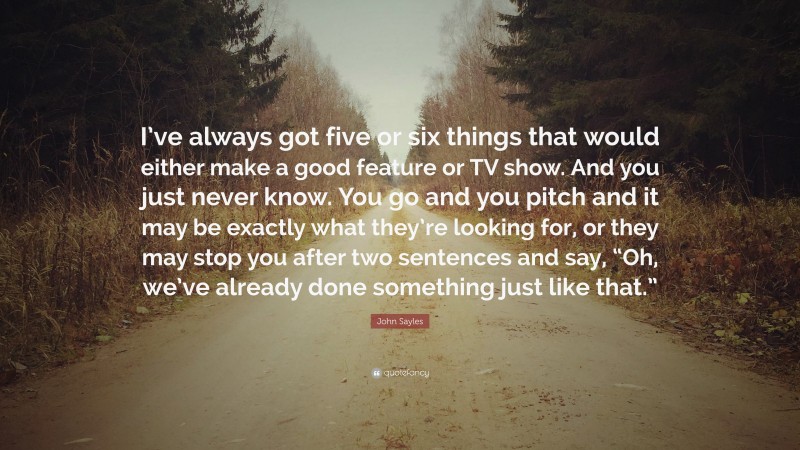
Other recent television credits include HBO’s THE OUTSIDER, opposite Ben Mendelsohn and Cynthia Erivo, RUSSIAN DOLL opposite Natasha Lyonne, and TNT’s miniseries I AM THE NIGHT. Yul Vázquez was most recently seen in Apple TV’s SEVERANCE, opposite Adam Scott and Christopher Walken, and directed by Ben Stiller. Sayles then changed pace with The Secret of Roan Inish in 1994.I had the pleasure to interview Yul Vázquez.

After beginning the 1990s with a similar exploration of (contemporary) American society in City of Hope (1991), Sayles earned further praise and a Best Original Screenplay Oscar nomination for Passion Fish (1992), a film that examined the often-fractious relationship between a paralyzed former soap opera star (Mary McDonnell) and her live-in nurse (Alfre Woodard).

Both films provided unconventional looks at pivotal aspects of American history, further marking Sayles as a director who traveled down his own road. Matewan (1987) and Eight Men Out (1988) followed, providing complex studies of union politics in a 1920s West Virginia coal-mining town and the 1919 Black Sox scandal in baseball, respectively.

A look at a variety of issues, including racial prejudice and drug addiction, the film won further acclaim for its director, who also wrote, edited, scored, and acted in it. One of the results was The Brother From Another Planet (1984), the story of a mute, black alien (Joe Morton) who wanders the streets of Harlem. The same year that Baby, It's You was released, the director was awarded a MacArthur Foundation genius grant, which provided him with at least 32,000 dollars per year, tax-free, for five years. Sayles' negative experiences while making the film caused him to vow that he would never again trade the rights to a final cut for funding fortunately, he didn't have to. The former was an examination of the changes facing a married woman who realizes that she's a lesbian, while the latter was the first and last film the director made under the control of a studio. Featuring future Sayles regulars like Strathairn, Renzi, and Gordon Clapp, the film garnered critical praise, winning awards for Best Screenplay from both Los Angeles and New York film critic groups when it was released in 1980, and predating by several years Lawrence Kasdan's similar but more commercially successful The Big Chill.In 1983, Sayles made Lianna and Baby, It's You. Shot for a reported 40,000 dollars, it was a poignant look at a reunion of 1960s activists on the cusp of adulthood. Armed with this rudimentary filmmaking experience, Sayles directed his first film, Return of the Secaucus 7, in four weeks in 1978. Under Corman's auspices, he wrote Piranha (1978), The Lady in Red (1979), and Battle Beyond the Stars (1980). Meanwhile, Sayles found additional employment, joining Roger Corman's stable of B-movie writers in the mid-'70s. Sayles' 1979 short story anthology, The Anarchist's Convention, met a similar fate. Both Pride of the Bimbos (1975) and Union Dues (1977) met with positive critical notices but little financial success. Supporting himself with jobs as an orderly, a day laborer, and a meat packer, he began to write, submitting stories to magazines and eventually publishing two novels. It was through such activities that he met many of the people who would be his future collaborators, including actor David Strathairn and Maggie Renzi, who would serve as his producer and offscreen companion.Following his graduation from Williams, Sayles decided to embark on a career as a fiction writer. In addition to pursuing a degree in psychology, Sayles also appeared in school plays and summer stock. A native of Schenectady, NY, where he was born on September 28, 1950, he went on to study at Williams College.

As a result, his films tend to be rich, nuanced explorations of personal and political relationships, a style that reflects Sayles' beginnings as a novelist he once admitted, "My main interest is making films about people.I'm not interested in cinematic art." Sayles' interest in storytelling began at an early age: before the age of nine, he was an avid novel reader. One of America's preeminent and best-respected independent filmmakers, John Sayles has established a reputation for refusing to abandon his values in favor of becoming a studio filmmaker.


 0 kommentar(er)
0 kommentar(er)
